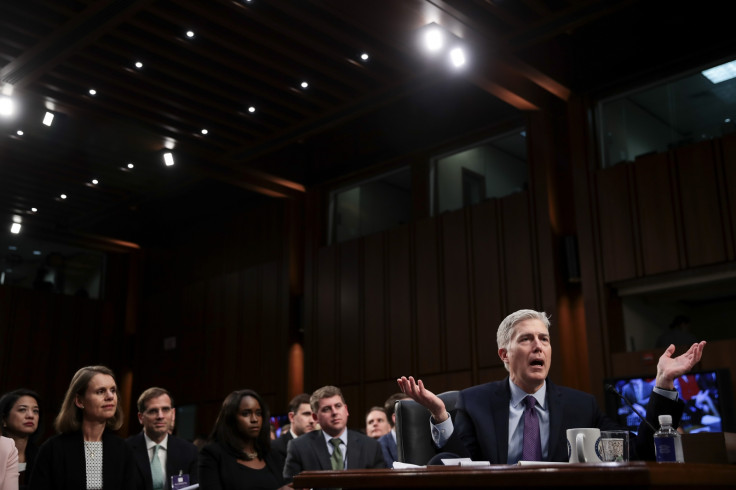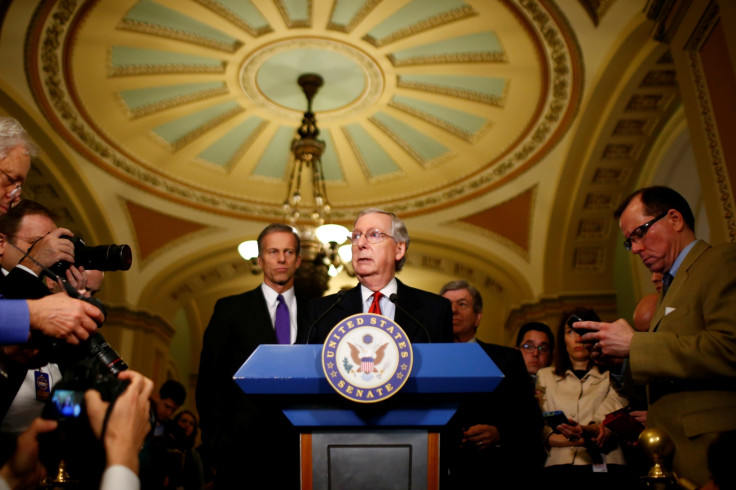US political leaders in war stance as Supreme Court nominee Neil Gorsuch vote looms
Senate leadership readies arguments as question mark hangs over Democrats filibustering to block appointment.
The biggest question surrounding the potential ascension of Neil Gorsuch to America's highest judicial body, the Supreme Court, does not seem to be one of ideological margins or philosophical meanderings – it's about parliamentary rules. Just how many votes does Gorsuch need to be confirmed as the next associate Supreme Court justice?
The question hinges around filibusters – senators are allowed an indefinite amount of time to speak during a debate, ergo, they can just keep speaking forever to hold up a debate. The only way to end the debate otherwise, is to have 60 out of the 100 senators vote to invoke "cloture", which would then bring the subject to a normal vote.
For Gorsuch to be confirmed, he needs 51 votes for a simply majority, but for there to even be a vote, the debate has to end. If a minority party wanted to keep the debate going indefinitely on a never-ending carousel of senators, there would need to be 60 votes to get to the actual vote.
To add an extra level of confusion, there is one thing that a majority party can do to avoid a filibuster: change the Senate rules. In Washington, this has become known as the nuclear option.
On the Sunday talk shows, this confusing set of administrative hurdles was the central theme of the two Senate party leaders putting down their flags.
Democrat leader Chuck Schumer told NBC's Meet The Press that Gorsuch "will not reach the 60-vote margin".
Republican leader Mitch McConnell took to the airwaves to deride Schumer's position as an historical anomaly: "How many of them are willing to oppose cloture, on a partisan basis, to kill a Supreme Court nominee? Never happened before in history, in the whole history of the country."

Who's the real partisan?
For Democrats, McConnell's talk of unprecendented partisanship is laughable. On the floor of the Senate last week, Schumer spoke of how the Republicans, led by McConnell, "broke 230 years of precedent when it refused to even consider President Obama's nominee, Chief Justice Merrick Garland, with almost a year left in Obama's presidency".
"No vote. Not even a hearing," he said. "And Republicans accuse Democrats of the first partisan filibuster of a Supreme Court nominee?
"What Republicans did to Merrick Garland was worse than a filibuster. They didn't even grant him the basic courtesy of a filibuster."
Republicans hold 52 of the Senate's 100 seats, leaving them eight short of being able to stop a filibuster but as of Sunday (2 April), they were slightly closer to that target. Three Democratic senators have said they will support Gorsuch's confirmation: Heidi Heitkamp of North Dakota, Joe Manchin of West Virginia and Joe Donnelly of Indiana.
As ABC noted, all three are up for re-election next year in states won by President Donald Trump.

In a relatively unveiled threat, McConnell told Meet The Press: "I can tell you that Neil Gorsuch will be confirmed this week. How that happens really depends on our Democratic friends."
Attempting a more bipartisan approach, Schumer said: "Each side didn't get their nominee. Let's sit down and come together."
After the failed repeal of the Affordable Care Act, also known as Obamacare, Trump blamed Democrats for not coming on board. Schumer's remarks seem like retaliation for that, asking like a Shakesperean character: who among them is the real partisan?
In a statement announcing his intention to vote against his party, Donnelly said: "I was deeply disappointed by the way the most recent Supreme Court nominee, Judge Garland, was treated by the Senate, but as senator, I can only vote on the nominee that comes to the Senate floor."
"However, I believe that we should keep the current 60-vote threshold for Supreme Court nominees."
This week will show whether his hope was naive.
© Copyright IBTimes 2025. All rights reserved.






















